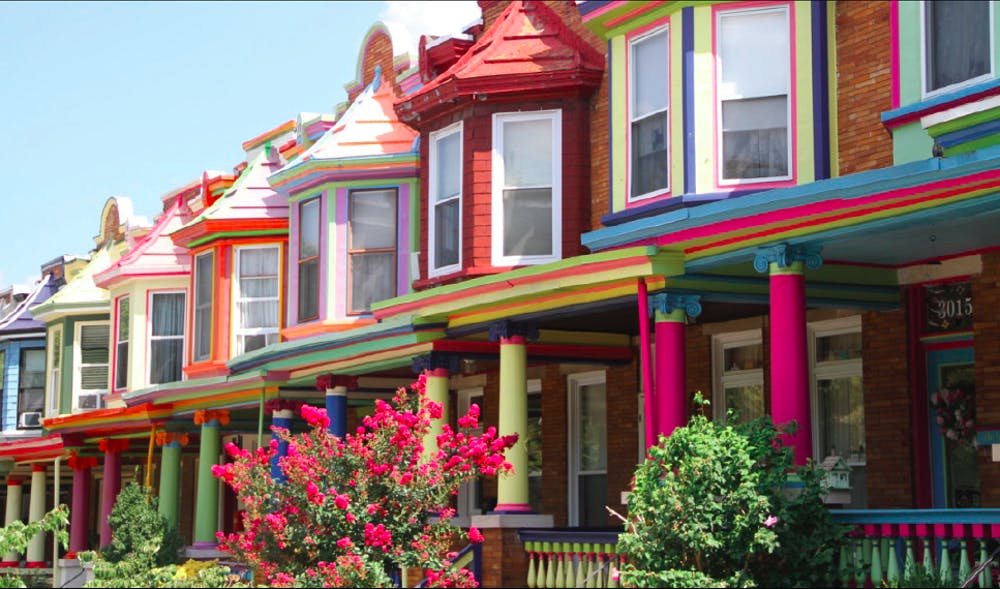This article is part of our special issue on policing.
Last spring members of the Maryland General Assembly refused to support a bill that would allow Hopkins to create a private police force. Lawmakers called on University officials to conduct an interim study and engage in more substantial community outreach if they wanted to reintroduce a bill in the future.
In response to this, administrators announced in October that they would host a number of discussions, forums and panels in which Baltimore residents could share their views. In addition, University officials met with numerous community organizations and stakeholders.
Despite the increased outreach, some residents feel that the historic distrust between the community and the University has not been addressed and has impeded efforts to foster dialogue.
Members of the neighborhoods surrounding the Homewood and East Baltimore campuses spoke to The News-Letter about how they’ve responded to the University’s outreach efforts. Nia Redmond, founder of the East Baltimore Historical Library, attended one of the forums near Homewood Campus. Redmond stated that she was confused when she first heard that students were protesting the bill.
“You saw it on the news and wanted to know... why the students are protesting [the bill], when you thought it was something that they would support,” Redmond said. “After you go to some of the public forums and you hear from the young people, it seems like the students have issues that aren’t being addressed by the institution.”
Redmond went on to emphasize the lack of trust she saw at the forum, both between the University and its students and between the University and community members.
“Your own students don’t trust you to be responsible enough to have a private police force. And that’s sad,” Redmond said.
In an email to The News-Letter, Director of Local Government and Community Affairs Jennifer Mielke emphasized that the University has provided a variety of ways for community members to participate in the private police force dialogue.
“Hearing from our neighbors and members of our community is very important to us. That’s why, over the last year, we worked to engage our communities in a collaborative and comprehensive process to hear a broad range of viewpoints on the issue of security on and around our campuses,” Mielke wrote.
Mielke further stated that she and other members of the University have worked hard to incorporate the feedback into the legislative process.
“Many of the concerns we heard from students and the community were about how a University police department would be trained and held publicly accountable,” she wrote. “The department we are proposing – and that is described in the Interim Study Report – would receive extensive training on matters like racial profiling, treatment of persons with mental or physical disabilities, and victims of sexual assault. It would also be subject to more public and community oversight than any other Maryland law enforcement body.”
Kevin Cleary, who worked for the Baltimore City's Mayor's Office of Emergency Management before his retirement, lives near Homewood campus and supports the University’s bid for a private police force. He argues that it will be easier for students, faculty and staff to hold members of a Hopkins police force accountable than a Baltimore City Police (BPD) officer.
“For Baltimore police officers to come on campus, they are Baltimore police officers, not Hopkins police officers,” Cleary said. “There’s a stronger line of accountability if someone were to misbehave, if someone were to do what everyone doesn’t want the police to do, there would be a direct connection between their action and their disciplinary action.”
Cleary also claimed that a Hopkins police department could relieve some strain off the BPD.
“If we can have a relatively small group of officers with a well-defined scope of work, that will help expand the resources that the city desperately needs,” Cleary said.
The BPD is currently undergoing reform following a 2016 U.S. Justice Department report found it in violation of several civil rights and anti-discrimination laws.
Cleary, who has had experience working with BPD officers, noted that good training and recruitment practices are critical to the creation of an ethical police force.
Leon Purnell, executive director of the East Baltimore Men and Families Center, agreed with this sentiment, adding that it was important for there to be strong accountability measures accessible to both the Hopkins and greater Baltimore community.
“The way things are going, the more police the better,” Purnell said. “Instead of people using energy to fight it, they should embrace it and use that opportunity to negotiate some parameters for them so that they don’t step outside of the boundaries.”
Purnell noted that Hopkins already has armed security that patrols the East Baltimore campus and said that he didn’t see much difference between current security and a Hopkins police force.
Nia Redmond, who is also a member of the East Baltimore community, agreed that students who opposed the police force should design strong accountability measures. She feels that it is inevitable that the bill will pass and students should not focus all their energy on just resisting the bill.
“Last year was an election year. All of the senators and all of the delegates were up for reelection, so it was going to be hard for delegates and senators in Baltimore City to support a bill that controversial. But they know that they don’t have to worry about that now. It’s not an election year. So that’s the reason I feel strongly that Hopkins will get that bill passed this year,” Redmond said. “We need to be prepared.”
Correction: The original version of this article stated that Kevin Cleary is the community program manager at the Mayor’s office. Cleary is retired from Baltimore City's Mayor's Office of Emergency Management where he was the Director of Preparedness.
The News-Letter regrets this error.

















